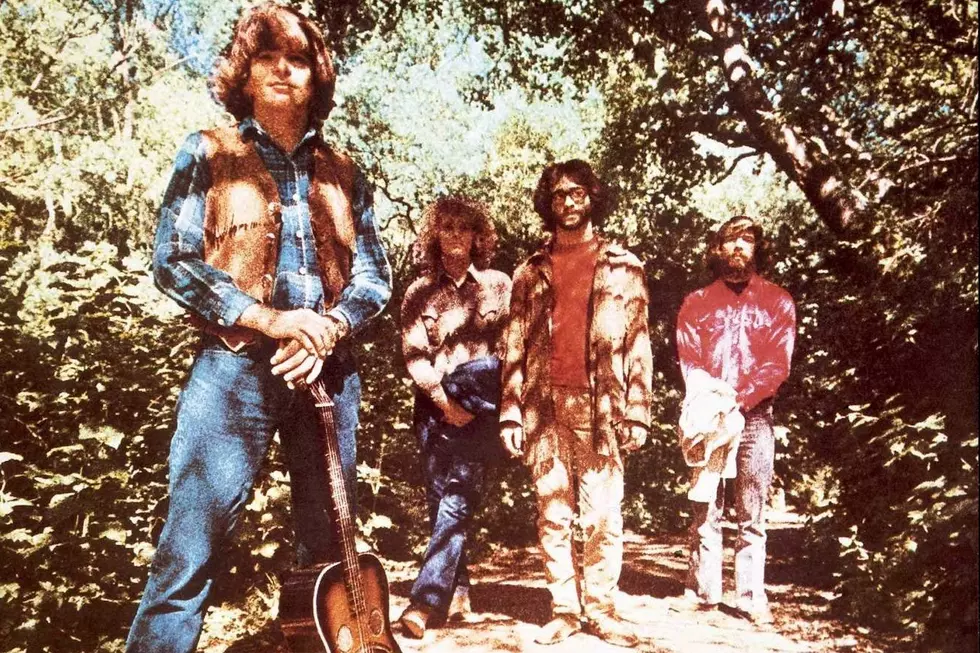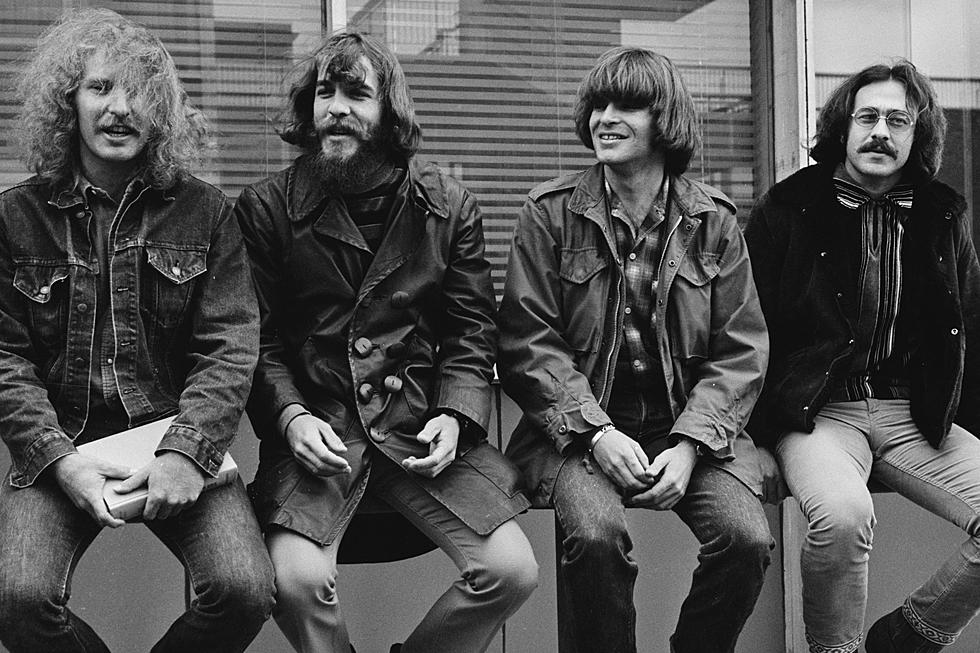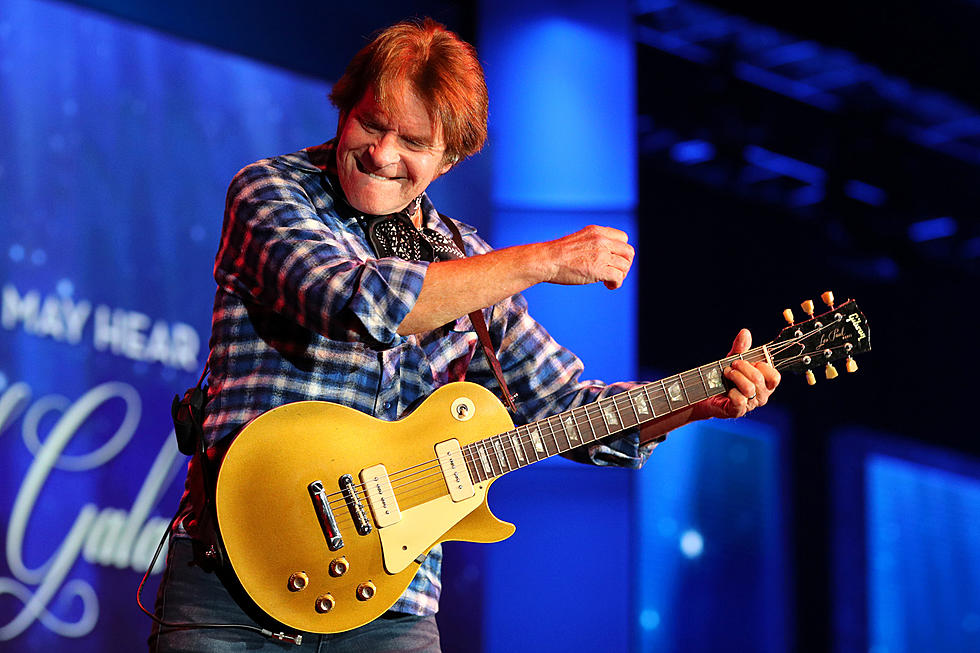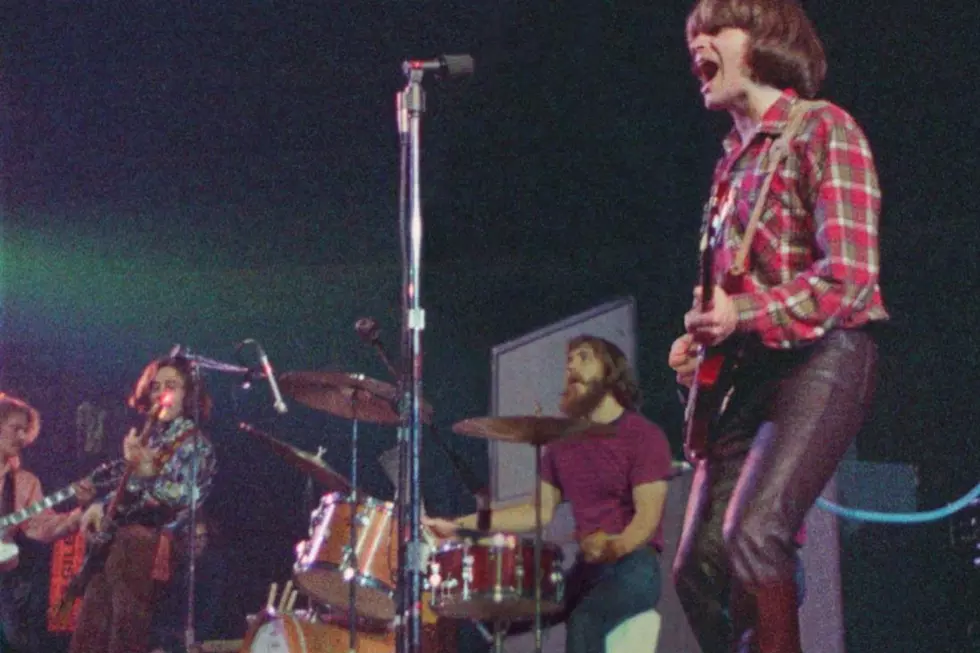
When Creedence Clearwater Revival Found Their Musical Center With ‘Green River’
Any artist that manages to stick around will end up evolving at some point – but few do it as quickly or successfully as Creedence Clearwater Revival, who returned to record stores on Aug. 5, 1969, with Green River, their third overall album and second of the three LPs they'd release that year. River followed hot on the heels of the group's second effort, Bayou Country, which had arrived in January; as singer, guitarist, and primary songwriter John Fogerty later recalled, it was that album's success that spurred him to go deeper with his music.
"After Bayou Country, I began to feel I had the freedom or power to do what I wanted," Fogerty told Uncut, explaining the nostalgic mood that permeates Green River. "And where I went ... was right to my emotional, musical core."
That inward journey included an embrace of childhood memories, specifically on the title track, a No. 2 hit single that was inspired both by a Fogerty family vacation spot and a drink John loved to order at a particular soda shop when he was a kid. "The drink was a green, lime drink on ice with fizz water, a soggy green snow cone," he said later. "That's what I would order and it made me the happiest."
All of which is not to say that Green River is a misty album of watercolor memories; it includes some of the band's punchiest, most instantly memorable work, as well as a fair amount of good old-fashioned storytelling. Of the plaintive "Lodi," which laments the narrator's lot in life as he's stuck in the titular one-horse town, Fogerty mused, "I saw a much older person than I was, because it's sort of a tragic telling. A guy is stuck in a place where people really don’t appreciate him. Since I was at the beginning of a good career, I was hoping that that wouldn’t happen to me."
Fogerty also looked outside his own experiences for the No. 2 hit "Bad Moon Rising," which he later admitted was inspired by a viewing of the 1941 film The Devil and Daniel Webster. "That just seemed so spooky, the idea of an epochal force – nature, or the devil, or whatever – that’s gonna get you," he said. "Later, people began to point out, 'Hey, John, you’ve got this song about death and doom, but it’s this bouncy little thing.' And I’d go, 'I just didn’t worry about that part.'"
What Fogerty did worry about – along with his bandmates Tom Fogerty (rhythm guitar), Stu Cook (bass) and Doug Clifford (drums) – was rehearsing like crazy so the band could make sure the songs were exactly where they needed to be before they entered the studio. It was that dedication that helped make CCR such a reliable source of great music in 1969 – and, much to their label's delight, kept recording costs low.
"They were one of the few bands [that] when they came in to record, they were ready," engineer Russ Gary once said. "They worked hard. One of the few bands that used to show up and really kick it. Really take care of business. [Studio owner Wally Heider] used to say he never saw a band that came in and took care of business like Creedence. They came in, wham, bam, thank you ma'am, they cut 'Green River' right off the bat. It didn't take long. It was a lot of preparation."
In fact, Fogerty said they completed five basic master tracks – with music, but no vocals – in just one day. "I think we scrapped one and redid it," he said. "Whatever was left, three songs, we did the next day. In this age of studio-conceived music, I guess it seems weird, but we rehearsed first."
As a result, Fogerty added, CCR's first three albums each cost less than $2,000 to make. "We always know what we'll do before going into the studio," John said in a 1970 interview with Hit Parader. "We want our music to last a while, be part of a continuous thread. Stay on the main line rather than go off on side trips. The basis of our thing is country blues and it might always be. Blues is blues anywhere. It's the most straight forward way to say anything that's on your mind. The one-four-five chords. Even Pythagoras, the Greek philosopher, figured it out that those chords are the most pleasing to the ear. He figured it out mathematically."
Not that the albums didn't represent creative growth, speedy as they may have been. "Green River was the next step without changing much, format-wise," Clifford argued. "We did have that sort of Southern thing; it was a little more focused than on the other albums. The tune 'Green River' is one of my favorites. That's a great tune. It's fun, it's an up, happy, summer song and it can warm a heart during the middle of winter."
For John, Green River remained "a high water mark in my musical life, only because it felt so good. Here was the music closest to my musical center. Even though we had bigger albums, that album was my favorite. Green River was where I lived from the sound of the record, what the record's about, the riffs, the setting, which spills out on the rest of the album, the cover. It's my most comfortable place."
Tom Fogerty said "everything described in that song is real and actually happened." And it wasn't just that title track that grew out of John's private life; he eventually admitted that the Green River track 'Wrote a Song for Everyone' was inspired by an argument with his wife, who wanted him to be more involved in their young son's upbringing. "As she walks out the door, I say to myself, 'I wrote a song for everyone and I couldn't even talk to you,'" he explained. "You sit and write these songs, yet you try to talk to your own son and daughter and maybe you're totally inadequate, trying to explain life to a child."
Clifford too asserted that "John was better able to communicate through his music than he was speaking with people." It was, at least in part, this inability to articulate in times of crisis would eventually help hasten the band's demise. But, in August 1969, the future seemed limitless for Creedence Clearwater Revival. "Our career is just starting," John said at the time. "There is so much untapped sound and so many songs waiting to be written."
Greeted with rave reviews, Green River topped the album charts, spinning off a pair of hit two-sided singles ("Bad Moon Rising" backed with "Lodi" and "Green River" backed with "Commotion") before yielding to CCR's third album of 1969, Willy and the Poor Boys, in November.
Top 100 Classic Rock Artists
More From Ultimate Classic Rock









